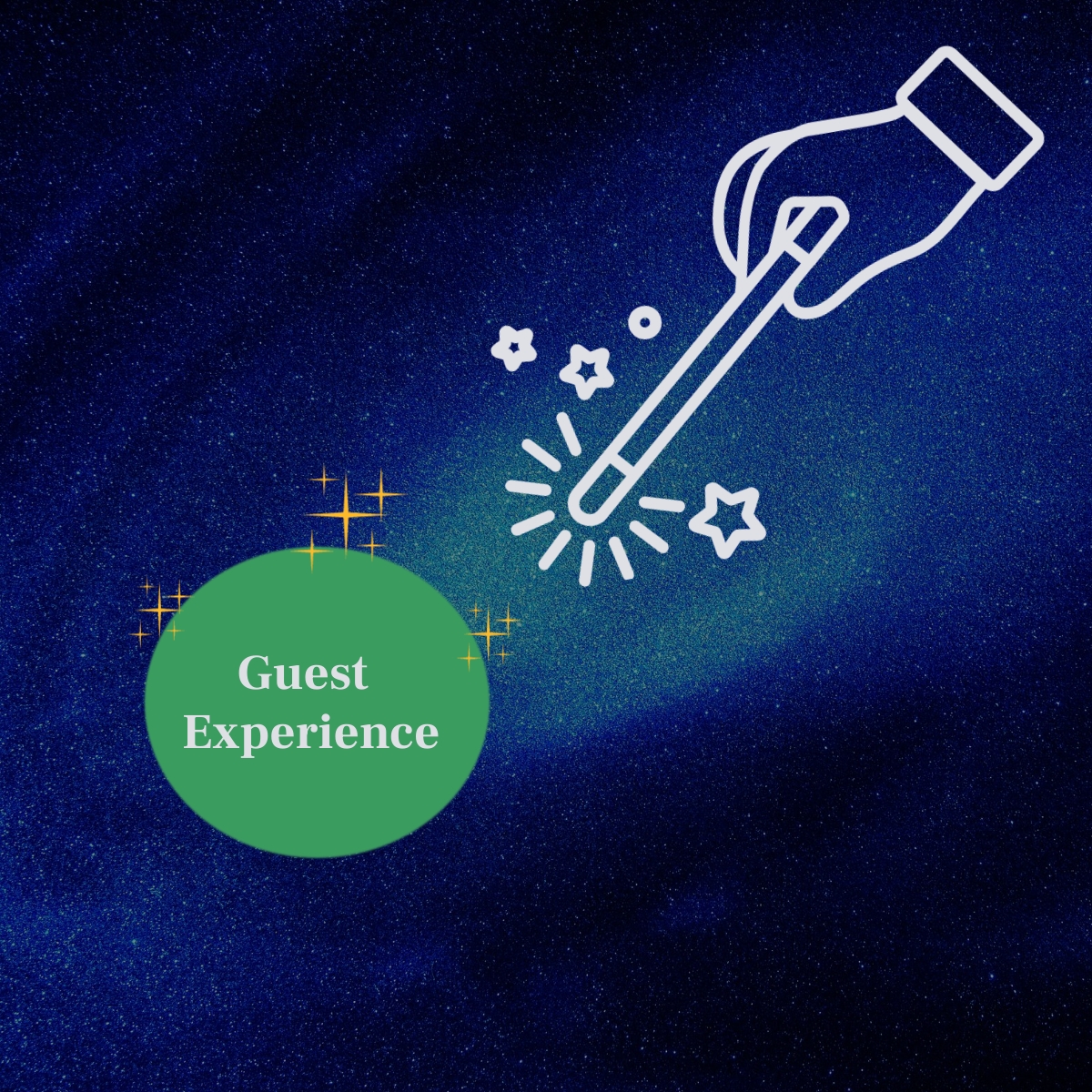In today’s competitive hospitality industry, understanding and responding fast to guest needs is the basis of making guests happy and making your hotel #1 in your vertical.
Hospitality is knowing what your guests need before they do!
This is the main mission of guest experience managers who play a crucial role in ensuring that guests have positive and memorable stays.
They need to make sure that all of their guests have what they need to be happy. Now, the challenge is that when you host thousands of people in your hotel, and every single one of them has totally different needs, this is where it gets tricky.
One family came with 2 little kids, the other guest came for a business trip and he needed a meeting room with all the facilities and the other guest eats only gluten free products for his breakfast and the list goes on and on.
However, they also face a number of challenges in today’s competitive hospitality industry.
Let’s talk about the Challenges Faced by Guest Experience Managers Today.
Rising guest expectations: Guests have higher expectations than ever before, thanks to increased access to information and a wider range of experiences. This can make it difficult for hotels to keep up with changing trends.
Managing online reputation: Online reviews and social media have a significant impact on a hotel’s reputation. Guest experience managers must be proactive in monitoring and managing online feedback, responding in an authentic way to negative reviews in a timely and professional manner.
Balancing guest satisfaction with operational efficiency: While it is important to provide exceptional guest experiences, it is also essential to manage costs and maintain operational efficiency. Guest experience managers must find ways to balance these competing priorities and this is probably the most challenging aspect of all. How to decide what to fix first? What will have more impact on guests’ satisfaction?
Managing diversity and inclusion: Hotels are becoming increasingly diverse, and it is important to create a welcoming and inclusive environment for all guests. Guest experience managers must ensure that their staff are trained to be culturally sensitive and respectful of differences. All guests want to feel welcome.
Integrating technology: Regarding technology, it is playing an increasingly important role in the hospitality industry. Guest experience managers must stay up-to-date on the latest technologies and find ways to integrate them into their operations to improve the guest experience. There is 1 aspect that I really recommend: Not involving technology in, do not use AI bots to respond to reviews. There is nothing worse than your guests seeing repetitive cold responses for reviews.
Addressing these challenges requires a combination of creativity, innovation, and strong leadership but mainly in my opinion it requires listening and a high level of awareness of guest needs. If a guest feels that the staff can really see them and their needs, this is winning.
By understanding the challenges faced by guest experience managers, hoteliers can provide the support and resources needed to ensure that their guests have positive and memorable experiences. But, how can they organize and realize all of these huge amounts of feedback they get from guests?
There is only 1 answer: Data and reviews analysis which involves collecting, organizing, and interpreting data to identify aspects, patterns and negative and positive trends.
By analyzing reviews, hoteliers can gain valuable insights into:
Guest demographics: Analyzing guest demographics, including age, gender, and nationality, allows hotels to tailor their services and amenities to specific market segments, knowing where you have marketing possibilities that for example can grow your audience from a specific location.
Guests’ trip types preferences: knowing which trip type they liked or disliked gives you the option to make each group happier. Addressing more resources to their needs.
Areas of satisfaction: Identifying the aspects of the guest experience that are most appreciated can help reinforce positive elements and ensure they are consistently delivered.
Areas for improvement: Negative reviews highlight areas where the guest experience falls short. By analyzing common trends, hoteliers can prioritize improvements and address specific pain points.
Guest expectations: Understanding guest expectations helps hotels set realistic standards and ensure they are meeting or exceeding guest needs.
Comparing negative and positive aspects with hotel competitors can help the hotel give a better experience and advantage for your hotel.
When combined, data analysis and review analysis can provide a more comprehensive understanding of the guest experience. For example,
Measuring impact: By tracking key performance indicators (KPIs), such as guest satisfaction scores and repeat business, hoteliers can measure the impact of their efforts to improve the guest experience.
Making data-driven decisions: The insights gained from data analysis and review analysis can inform decision-making on a variety of issues, including operations, facilities, marketing campaigns, and service improvements.
When hoteliers look at the big picture, they can gain a much deeper understanding of their guests, improve the guest experience, and make more informed decisions fast. This, in turn, can help hotels increase revenue, enhance their reputation, and achieve long-term success. You can’t fix what you can’t see, and the reviews analysis turns on the light on your guest experience feedback in a much more detailed and eye - opening way.
Discover, Learn, Improve, Grow!












